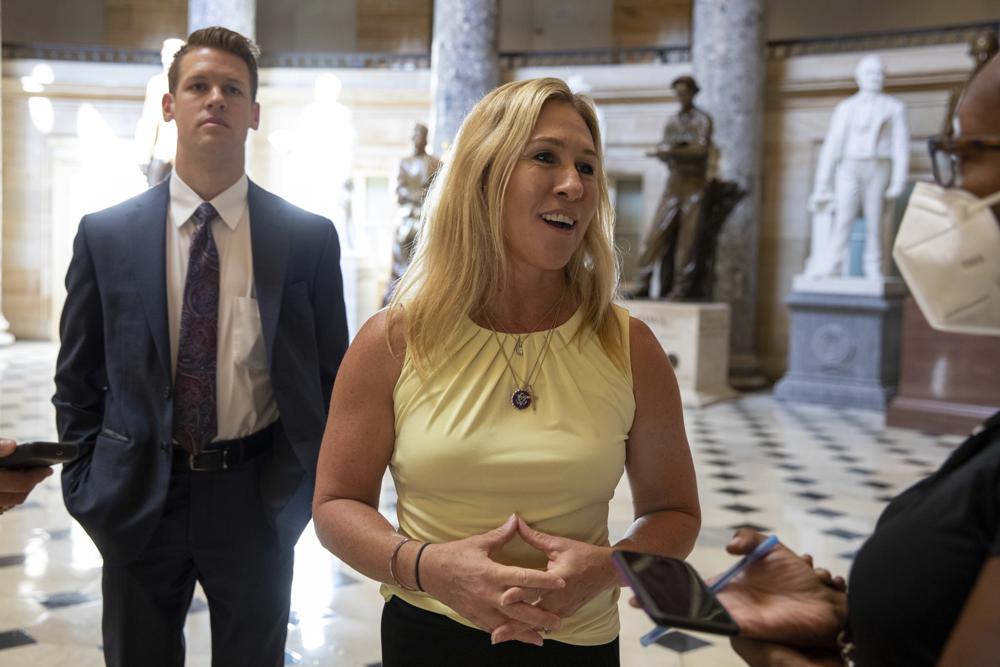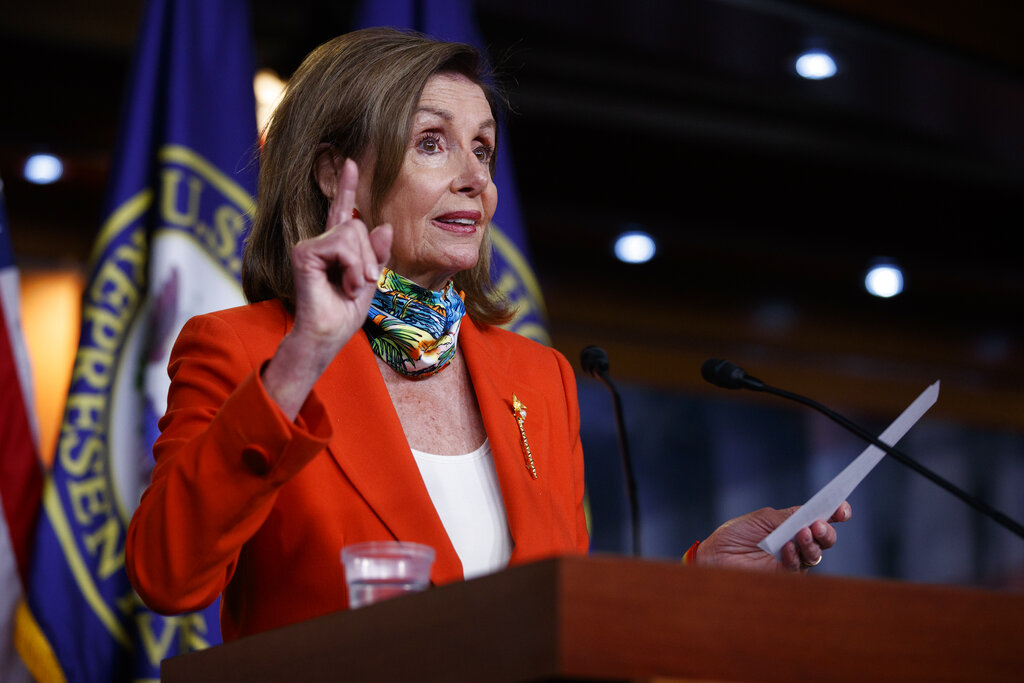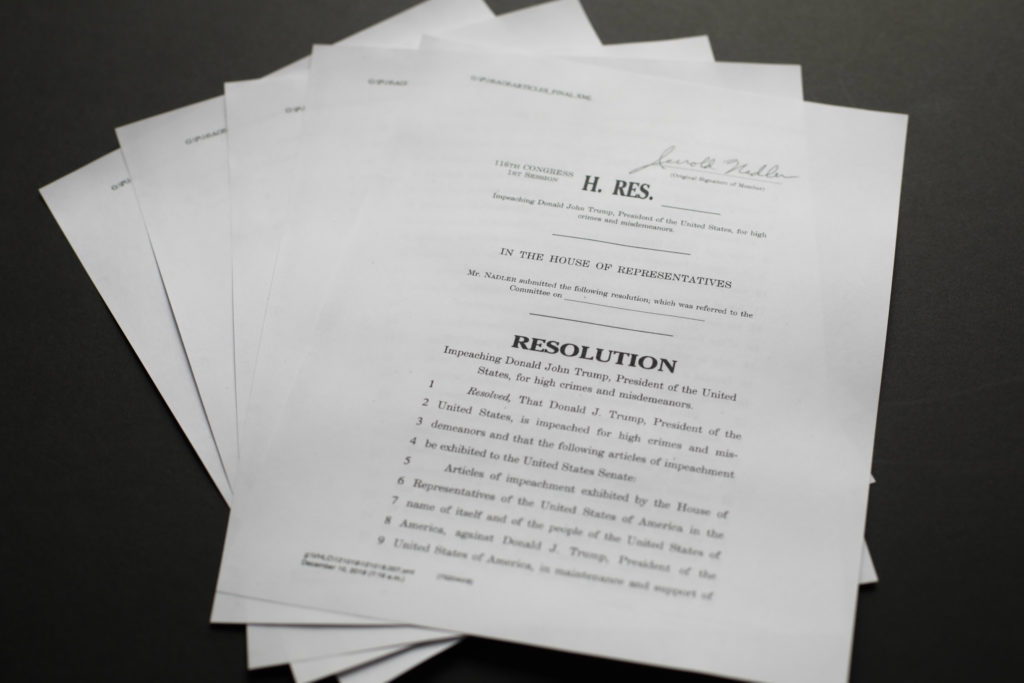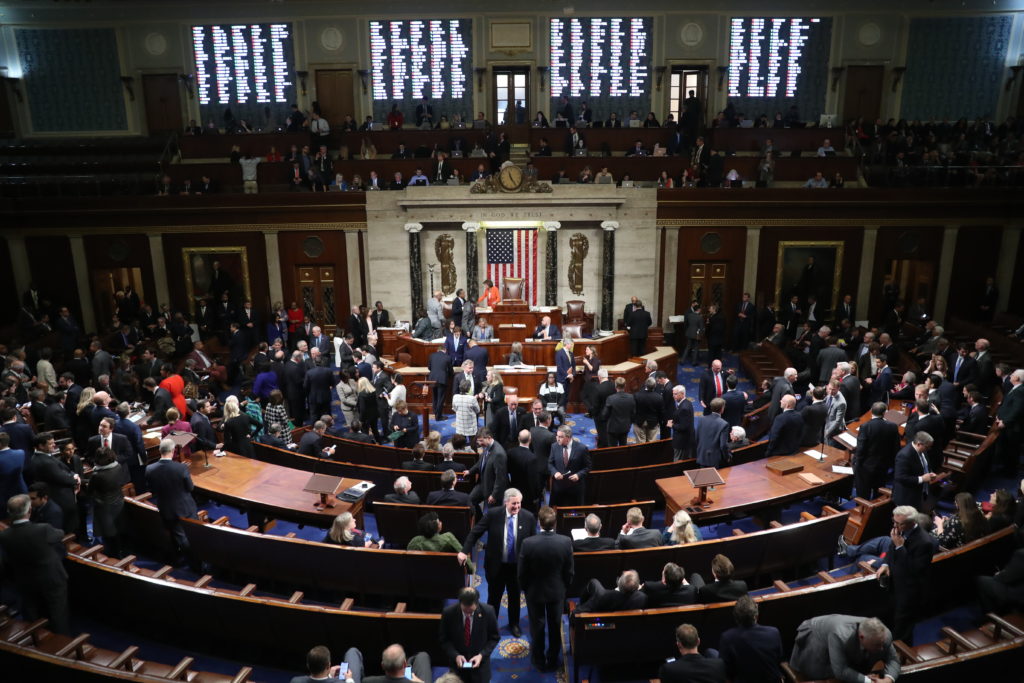Jerry Carl co-sponsors legislation to encourage energy production and stop foreign oil dependence

Rep. Jerry Carl has co-sponsored legislation to help American energy production. The Unleashing American Energy Act would require a minimum of two oil and gas lease sales a year in the Gulf of Mexico and in the Alaska Region of the Outer Continental Shelf, and it prohibits future moratoriums or delays on oil and gas leasing. “At a time when fuel prices are at record highs, the Biden administration has not let up on its regulatory assault on American energy producers. As a result, Americans are paying more for fuel and nearly everything else. That’s why I’m proud to introduce the Unleashing American Energy Act, which would reverse Biden’s war on American energy and unleash domestic production. Although this bill won’t solve all our energy problems overnight, it will help lower energy prices and bring much-needed relief to millions of Americans. Under the Trump administration, we had regular oil and gas lease sales in the Gulf of Mexico, and the United States became energy independent. My bill would require two new oil and gas lease sales each year in the Gulf of Mexico and in Alaska, while also prohibiting oil and gas lease sales from being blocked or slowed down again,” said Carl. House Committee on Natural Resources Ranking Member Bruce Westerman argued that this legislation will help stop America’s energy dependence. “Today, we are taking a necessary step to end President Biden’s repeated assaults on American energy. The American people continue bearing the brunt of these disastrous policies. Enough is enough. The bills we introduced today will allow us to tap into the rich stores of resources America already has, and further both our energy independence and our innovation in the energy sector. Together with legislation promoting development of American critical minerals and energy independence that our members introduced earlier this Congress, we are advancing an all-of-the-above energy approach that will strength our nation and allow us to lead the world into the future,” said Westerman. According to Carl’s press release, the U.S. Department of the Interior is required by law to publish regular five-year leasing plans. The current plan expires on June 30, 2022. The Biden administration has not initiated the process to publish a new one. The Unleashing American Energy Act is cosponsored by House Committee on Natural Resources Ranking Member Bruce Westerman (R-AR), House Republican Conference Chair Elise Stefanik (R-NY), and Reps. Troy Balderson (R-OH), Russ Fulcher (R-ID), Garret Graves (R-LA), Yvette Herrell (R-NM), Doug Lamborn (R-CO), Tom McClintock (R-CA), Blake Moore (R-UT), Dan Newhouse (R-WA), Matt Rosendale (R-MT), Pete Stauber (R-MN), Chris Stewart (R-UT), Tom Tiffany (R-WI), Jeff Van Drew (R-NJ), Beth Van Duyne (R-TX), and Robert Wittman (R-VA).
Death threats, tweets jolt GOP infrastructure supporters

The last time Congress approved a major renewal of federal highway and other transportation programs, the votes were 359-65 in the House and 83-16 in the Senate. It was backed by nearly every Democrat and robust majorities of Republicans. This year’s $1 trillion infrastructure bill easily cleared the Senate 69-13 with GOP support but crawled through the House last week by 228-206 with just 13 Republican votes. Those defectors were savaged afterward by former President Donald Trump, hard-right Rep. Marjorie Taylor Greene, R-Ga., called them “traitors” while tweeting their names and office telephone numbers, and one of the 13 says he received a death threat. The votes, six years apart, and the harsh blowback against Republican mavericks illustrate a GOP in which conservative voices have grown louder and more militant, fanned by Trump’s bellicose four years in office. Growing numbers of progressives have made Democrats more liberal, too, with both shifts fueling a sharpening of partisanship in Washington. “This madness has to stop,” said Rep. Fred Upton, R-Mich., an 18-term moderate, who said his offices received dozens of threatening calls following his yes vote. That included one obscenity-laced rant that aides provided in which the caller repeatedly called Upton a “traitor” and expressed hope that the lawmaker, his family, and aides would die. Upton closed his two Michigan offices for a day and reopened them after increasing their security. This year’s bill, triple the size of the 2015 measure, is a keystone of President Joe Biden’s push to create jobs and build out the nation’s roads, water systems, broadband coverage, and other projects. A compromise between Senate Democrats and Republicans, it will send money into every state and is the kind of bill that politicians have loved promoting back home for decades. Biden plans to sign it Monday. Democrats say GOP opposition to the bill is indefensible on policy and political grounds. “It’s a sad statement of how the other party has lost its way,” said Rep. Sean Patrick Maloney, D-N.Y., who’s leading the House Democratic political arm into a 2022 campaign in which Republicans have solid chances of capturing congressional control. ”If you want our country to fail so you can say things are bad and win power for yourself, you act like the House Republicans are.” But for many Republicans, infrastructure projects — once an issue the two parties would reflexively work together on for mutual and national benefit — now offer a complex political calculation. “When it comes to policy these days, we’re basically divided into two tribes. And you stick with your tribe, and you don’t try to help the other tribe,” said Glen Bolger, a GOP pollster, and strategist. As president, Trump repeatedly promised his own massive infrastructure plan but never produced one, making the phrase “infrastructure week” a Washington synonym for “pipe dream.” But he opposes the current package, and his ability to rally his conservative supporters against those who cross him was a factor as GOP lawmakers decided how to vote. Even so, hard-right cries for retaliation against the 13 pro-infrastructure Republicans, largely moderates from the Northeast and Midwest, have prompted their own pushback. “This notion that we’re going to have people that are on the fringe, in terms of the Marjorie Taylor Greenes of the world and others, imposing some kind of a purity test on substance is lunacy,” said Rep. Liz Cheney, R-Wyo. Cheney has been at war with Trump and the party’s far-right ever since backing his impeachment early this year. Cheney opposed the bill, saying it contained clean energy and other provisions that would hurt Wyoming. She said the 13 Republicans who backed it are “among some of our very best members” who did it “because it was the right thing for their districts.” Senate Minority Leader Mitch McConnell, R-Ky., an unabashed partisan warrior, was among 19 Senate Republicans who voted for the bill in August. McConnell, who doesn’t have to worry about being re-elected until 2026, said this week he was “delighted” the measure was heading to Biden. A day earlier, McConnell had already drawn Trump’s wrath. Trump issued a statement denigrating GOP senators who’d backed the bill for “thinking that helping the Democrats is such a wonderful thing to do.” Those Republicans “should be ashamed of themselves, in particular Mitch McConnell,” Trump wrote. That was just the tip of the iceberg for the attacks. In an interview, the leader of the conservative House Freedom Caucus said GOP lawmakers should consider removing from their posts the 10 of the 13 defectors who are the senior Republicans on committees and subcommittees. “I respect their right to vote, their districts, and their conscience. But that doesn’t mean that they should get the privilege of leading” House Republicans, said Rep. Andy Biggs, R-Ariz. At a private Florida dinner Monday to bolster House GOP campaign prospects, Trump said he loves House Republicans but not the 13 who voted for the bill, according to an attendee who described Trump’s remarks on condition of anonymity. Earlier, House GOP leaders tweeted, and then deleted, that “Americans won’t forget” a vote for the “socialist” infrastructure bill. “Time to name names and hold these fake republicans accountable,” tweeted Rep. Lauren Boebert, R-Colo. Before last week’s vote, House Minority Leader Kevin McCarthy, R-Calif., said it would be “very difficult” for Republicans to promote backing the infrastructure bill during their campaigns because it is so closely linked to Democrats’ accompanying $1.85 trillion social and climate measure, which the GOP has solidly opposed. Rep. Jeff Van Drew, R-N.J., who switched parties in 2019, said he supported the infrastructure bill because his state would receive over $20 billion “we desperately need.” Van Drew, who said he had heard “some cranky things” from some people, scoffed at the notion that the bill would “catapult the president” politically. “If Marjorie Taylor Greene wants to be mean to me, that’s fine,” he said of the colleague who labeled him and 12 others traitors. “I love America very much. I would never ever do anything to hurt this country.” Republished
Dems push campaign-season health care bill through House

While the legislation had no chance of survival in the Republican-led Senate and faced a White House veto threat for good measure, Democrats plunged ahead anyway.
Defense resumes in key impeachment week; Dems seek witnesses

After a two-hour opening argument Saturday, Trump’s defense team will lay out its case in depth beginning Monday.
Donald Trump impeached by U.S. House on 2 charges

President Donald Trump was impeached by the U.S. House of Representatives Wednesday night, becoming only the third American chief executive to be formally charged under the Constitution’s ultimate remedy for high crimes and misdemeanors. The historic vote split along party lines, much the way it has divided the nation, over a charge that the 45th president abused the power of his office by enlisting a foreign government to investigate a political rival ahead of the 2020 election. The House then approved a second charge, that he obstructed Congress in its investigation. The articles of impeachment, the political equivalent of an indictment, now go to the Senate for trial. If Trump is acquitted by the Republican-led chamber, as expected, he still would have to run for reelection carrying the enduring stain of impeachment on his purposely disruptive presidency. He saw the blame flowing the other direction. He told a political rally in Michigan that “crazy Nancy Pelosi’s House Democrats have branded themselves with an eternal mark of shame.” The votes were 230 for impeachment and 197 against on the first count, 229-198 on the second. Democrats led Wednesday night’s voting, framed in what many said was their duty to protect the Constitution and uphold the nation’s system of checks and balances. Republicans stood by their party’s leader, who has frequently tested the bounds of civic norms. Trump called the whole affair a “witch hunt,” a “hoax” and a “sham,” and sometimes all three. The trial is expected to begin in January in the Senate, where a vote of two-thirds is necessary for conviction. While Democrats had the majority in the House to impeach Trump, Republicans control the Senate and few if any are expected to diverge from plans to acquit the president ahead of early state election-year primary voting. Pelosi, once reluctant to lead Democrats into a partisan impeachment, gaveled both votes closed, risking her majority and speakership to follow the effort to its House conclusion. “Today we are here to defend democracy for the people,” she said earlier during floor debate. Trump, who began Wednesday tweeting his anger at the proceedings, pumped his fist before an evening rally in Battle Creek, Michigan, boasting of “tremendous support” in the Republican Party and saying, “By the way it doesn’t feel like I’m being impeached.” No Republicans voted for impeachment, and Democrats had only slight defections on their side. Voting was conducted manually with ballots, to mark the moment. On the first article, abuse of power, two Democrats, Rep. Jeff Van Drew of New Jersey, who is considering switching parties to become a Republican, and Rep. Collin Peterson of Minnesota voted against impeaching Trump. On the second article, obstruction, those two and freshman Rep. Jared Golden of Maine voted against. Democratic Rep. Tulsi Gabbard of Hawaii, who is running for president, voted “present” on both. What Pelosi called a sad and solemn moment for the country, coming in the first year that Democrats swept control of the House, unfolded in a caustic daylong session that showcased the nation’s divisions — not only along party lines, but also by region, race and culture. The House impeachment resolution laid out in stark terms the two articles of impeachment against Trump stemming from his July phone call when he asked the Ukraine president for a “favor” — to announce it was investigating Democrats ahead of the 2020 election. He also pushed Ukrainian President Volodymyr Zelenskiy to probe unsubstantiated corruption allegations against Joe Biden, the former vice president and 2020 White House contender. At the time, Zelenskiy, a young comedian newly elected to politics, was seeking a coveted White House visit to show backing from the U.S. ally as it confronts a hostile Russia at its border. He was also counting on $391 million in military aid already approved by Congress. The White House delayed the funds, but Trump eventually released the money once Congress intervened. Narrow in scope but broad in its charge, the resolution said the president “betrayed the nation by abusing his high office to enlist a foreign power in corrupting democratic elections,” and then obstructed Congress’ oversight like “no president” in U.S. history. “President Trump, by such conduct, has demonstrated that he will remain a threat to national security and the Constitution if allowed to remain in office,” it said. Republicans argued that Democrats are impeaching Trump because they can’t beat him in 2020. “This vote is about one thing, and one thing only: They hate this president,” said Rep. Chris Stewart, R-Utah. “They want to take away my vote and throw it in the trash.” But Democrats warned the country cannot wait for the next election to decide whether Trump should remain in office because he has shown a pattern of behavior, particularly toward Russia, and will try to corrupt U.S. elections in 2020. “The president and his men plot on,” said Chairman Adam Schiff, Democrat-California, of the Intelligence Committee that led the inquiry. “The danger persists. The risk is real.” The outcome brings the Trump presidency to a milestone moment that has building almost from the time the New York businessman-turned-reality-TV host unexpectedly won the White House in 2016 amid questions about Russian interference in the U.S. election — and the rise of the “resistance.” Democrats drew from history, the founders and their own experiences, as minorities, women and some immigrants to the U.S., seeking to honor their oath of office to uphold the constitution. Rep. Lou Correa, Democrat-California, spoke in Spanish asking God to unite the nation. “In America,” said Rep. Hakeem Jeffries, Democrat-New York, “no one is above the law.” Republicans aired Trump-style grievances about what Arizona Rep. Debbie Lesko called a “rigged” process. “We face this horror because of this map,” said Rep. Clay Higgins, Republican-Alabama, before a poster of red and blue states. “They call this Republican map flyover country, they call us deplorables, they fear our faith, they fear our strength, they fear our unity, they fear our vote, and they fear our president.” The political fallout from the
What to watch as Donald Trump impeachment moved to House floor

American history is happening in the U.S. House of Representatives. Democrats are driving President Donald Trump to the brink of impeachment Wednesday as the House takes up charges Trump abused his power and obstructed Congress in pressuring Ukraine to investigate political rivals and refusing to cooperate with the ensuing congressional probe. The nation’s 45th president is on track to become only the third commander in chief to be impeached. But first, watch for a daylong showdown that’s been boiling for years between Republicans loyal to Trump and Democrats who say his conduct toward Ukraine makes him unfit for office. Look, too, for legacy moments for Washington’s political veterans on the eve of the 2020 election year. What to watch during a historic day on Capitol Hill that begins at 9 a.m. EST and is expected to end with a final vote between 6:30 and 7:30 p.m.: SPOILER ALERT Trump is heading for impeachment. When the House opens debate, the outcome will have been known for some time. A tally compiled by The Associated Press found that a majority of House members have said they will vote to approve the charges and send them to the Senate for a trial next month. The GOP-led Senate is not expected to convict and remove Trump from office. PARTISANS, MOSTLY Expect most Democrats to vote for impeachment and all Republicans to vote against it. But there are exceptions. One freshman Democrat, Jeff Van Drew of New Jersey, has indicated he will oppose impeachment, then switch parties to become a Republican. Earlier this year, Michigan conservative Rep. Justin Amash left the GOP when he favored impeachment. He is expected to vote yes to impeach. One new Democratic congressman, Jared Golden of Maine, said he would vote to impeach on abuse of power but not obstruction. AMERICANS Expect the House to take the nation’s us-vs-them political culture out for a spin before a global audience. But it’s not clear the proceedings are changing many minds. Trump’s approval ratings have held steady since a whistle-blower report and a partial transcript revealed he had pressured Ukraine’s president to investigate Democrats. Wide shares of Democrats both disapprove of the president and support impeachment, while wide shares of Republicans approve of Trump and want him to remain in office. New polls from The Washington Post/ABC News and CNN find support for impeachment and removal remains at about half of Americans. ‘PROFOUND DISGRACE’ Impeachment will subject Trump to what former Presidents Gerald Ford and Jimmy Carter called a “profound disgrace” that stains a president’s legacy forever. Only two presidents have been impeached: Andrew Johnson in 1868 and Bill Clinton in 1998. Richard Nixon chose to resign instead. Trump has mocked the articles of impeachment as weak. TRUMP’S DAY He’s heading to Michigan, the Democratic state he flipped in 2016. Vice President Mike Pence is on a bus tour across the state and expected to join Trump at the rally in Battle Creek. On the eve of the floor action, Trump gave a nearly six-page preview of his approach in a rambling letter to House Speaker Nancy Pelosi. in which he cast himself as a victim and accused the Democrats of smarting over their election losses. “You are the ones bringing pain and suffering to our Republic for your own selfish, personal political and partisan gain.” PELOSI It’s legacy time for her, too. In her second turn as speaker, the House veteran of more than three decades says relentlessly that impeachment is a somber time, not one for celebration. She says the Clinton impeachment proceedings were too divisive for the county and resisted opening impeachment proceedings against President George W. Bush after the Iraq War. She refused to launch impeachment proceedings against Trump over his obstruction of the Russia investigation, saying she’d be against doing so unless there was bipartisan sentiment for it. That still doesn’t exist for the impeachment articles now headed for passage. But Pelosi has said Trump’s conduct toward Ukraine, while holding up military aid to that country, left her no choice. “Very sadly, the facts have made clear that the President abused his power for his own personal, political benefit and that he obstructed Congress,” Pelosi wrote to colleagues. “In America, no one is above the law.” NEXT STOP: SENATE After votes on each of the two amendments, the House is expected to authorize Pelosi to name a team of prosecutors for the Senate trial. Lobbying for the jobs is well underway. The wagering begins with the two lead House impeachment chairmen, Adam Schiff of Intelligence and Jerrold Nadler of Judiciary, playing roles. The trial is expected to begin in January, with Chief Justice John Roberts presiding. Senate Majority Leader Mitch McConnell and Minority Leader Chuck Schumer have begun negotiating, and sniping, over how the trial will be conducted. McConnell set the partisan tone by declaring that he’s “not an impartial juror.” By Laurie Kellman Associated Press Follow Kellman on Twitter at: https://www.twitter.com/APLaurieKellman Republished with the Permission of the Associated Press.
Democrats lay out case for Wednesday Donald Trump impeachment vote

House Democrats laid out their impeachment case against President Donald Trump on Monday, a sweeping report accusing him of betraying the nation and deserving to be ousted, as key lawmakers began to signal where they stand ahead of this week’s landmark votes. What Democrats once hoped would be a bipartisan act, only the third time in U.S. history the House will be voting to impeach a president, is now on track to be a starkly partisan roll call Wednesday. No Republicans are breaking with the president and almost all Democrats are expected to approve the charges against him. A raucous town hall Monday in the Detroit suburbs put on display the nation’s wrenching debate over the unconventional president and the prospect of removing the him from office. Freshman Democratic Rep. Elissa Slotkin was both heckled and celebrated as she announced her support for impeachment. “There’s certainly a lot of controversy about this,” Slotkin told the crowd of 400. “But there just has to be a moment where you use the letter of the law for what they were intended.” Trump faces two articles of impeachment brought by Democrats. They say he abused the power of his office by pressuring Ukraine to investigate Democratic rival Joe Biden and obstructed Congress by aggressively trying to block the House investigation and its oversight duties as part of the nation’s system of checks and balances. The president “betrayed the Nation by abusing his high office to enlist a foreign power in corrupting democratic elections,” says the 650-page report from the House Judiciary Committee. He withheld military aid from the ally as leverage, the report says, and ”Trump, by such conduct, has demonstrated that he will remain a threat to national security and the Constitution if allowed to remain in office.” The report says the president then engaged in an unprecedented attempt to block the investigation and “cover up” his misconduct. “In the history of the Republic, no President has ever ordered the complete defiance of an impeachment inquiry,” it says. Trump, tweeting from the sidelines after instructing the White House not to participate in the House inquiry, insists he has done nothing wrong. He is promoting lawyer Rudy Giuliani’s alternative theory that it was actually Biden and Ukraine that interfered, a conspiracy-laden idea that other most other Republicans are actively avoiding. Sticking to the language he has relied on for months, he tweeted on Monday, “The Impeachment Hoax is the greatest con job in the history of American politics!” As the House prepares for Wednesday’s vote, just a handful of Democrats are expected to break ranks to oppose impeachment as Speaker Nancy Pelosi marches the majority toward a vote she hoped to avoid having Democrats take on their own. One freshman Democrat, Rep. Jeff Van Drew of New Jersey, lost five key staff members Monday after he said he would vote against impeachment and indicated he was switching parties to become a Republican. Another Democrat, Rep. Collin Peterson, a Minnesota centrist, has not decided how he will vote, his spokeswoman said As the House was detailing its case against the nation’s 45th president, attention was turning to the Senate where the top Democrat, Sen. Chuck Schumer of New York, called anew for fresh evidence and testimony from key White House officials for the Senate impeachment trial. “What is President Trump hiding?” Schumer said Monday. Senate Majority Leader Mitch McConnell is hoping to avoid a drawn-out spectacle in his chamber, though Trump, a former reality TV show host, has signaled that is what he prefers as he seeks vindication. Republicans, who hold the majority, are expected to acquit Trump of the charges during a trial starting in January. In a letter to McConnell, Schumer proposed hearing testimony from former national security adviser John Bolton, acting White House chief of staff Mick Mulvaney and two others as part of a detailed offer he made to Republicans as an opening offer for negotiations. Democrats want to hear from Bolton, who once labeled the alternative foreign policy orchestrated by Trump lawyer Giuliani a “drug deal’’ he wanted no part of. Bolton left the White House in September. The Democrats also want to hear from Mulvaney, who has acknowledged the military aid to Ukraine was being held up, as well as two other White House officials who defied House subpoenas to testify. McConnell is facing criticism for saying he’s taking his “cues” from the White House as he ensures Trump there will not be the 67 votes needed in the Senate to convict the president. Democrats complain that he and other Republicans are not operating as impartial jurors. The GOP leader is planning to meet soon with Schumer to discuss the contours of next month’s trial, McConnell’s office said. The report released Monday by the House Judiciary Committee, a historic marker like those produced during impeachment proceedings for Richard Nixon and Bill Clinton, formally lays the groundwork for the vote. It outlines the panel’s findings and includes those from the Intelligence Committee’s months-long investigation that was sparked by a still-anonymous government whistleblower’s complaint about Trump’s July phone call with Ukraine President Volodymyr Zelenskiy. It also includes Republican rebuttals. The House Rules Committee will meet Tuesday in what is expected to be a marathon session to set the parameters for Wednesday’s debate. By Lisa Mascaro and Mary Clare Jalonick Associated Press. Associated Press writers Laurie Kellman and Alan Fram in Washington, David Eggert in Rochester, Mich., and Steve Karnowski in Minnesota contributed to this report. Republished with the Permission of the Associated Press.


